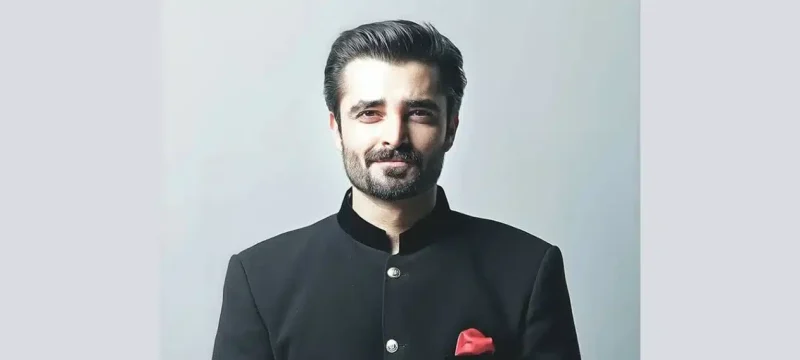Hamza Ali Abbasi, a leading figure in Pakistan’s entertainment realm, has emerged as a passionate advocate for women’s empowerment and workplace equality. In a recent interview, Abbasi offered candid insights into the challenges women face in the workplace, coupled with his vision for fostering a more inclusive and respectful environment.
Abbasi’s advocacy is deeply personal, rooted in his experiences with influential women in his life, including his sister and wife, both active professionals. He champions their resilience and strength, recognizing the invaluable contributions of working women to society.
Central to Abbasi’s discourse is the pervasive issue of workplace harassment. He unequivocally condemns such behavior, stressing the need for men to take a proactive stance in combating it. Abbasi asserts that men must not only denounce harassment but also actively challenge the normalization of such conduct within societal structures.
Also Read: Hamza Ali Abbasi Strongly Condemns ‘Item Numbers’ in Resurfaced Interview
Moreover, Abbasi advocates for legislative measures to criminalize workplace harassment, underscoring the urgency of legal intervention to ensure the safety and well-being of all employees. By calling for legal accountability, he aligns himself with broader efforts to enact systemic change and uphold justice for victims.
Abbasi’s solidarity with women who speak out against harassment is unwavering. He applauds their courage and emphasizes the importance of creating an environment where survivors feel empowered to share their experiences without fear of retribution or stigma.
Beyond addressing harassment, Abbasi acknowledges the systemic barriers faced by women in male-dominated industries, such as film and drama. He calls for greater support and allyship from men, urging them to actively promote gender equality and create inclusive workspaces. Drawing inspiration from Islamic teachings, he highlights the exemplary leadership of figures like Hazrat Khadija RA, emphasizing the principles of empowerment and respect enshrined in Islamic tradition.
Abbasi’s advocacy extends beyond rhetoric to tangible action within the entertainment industry. As an actor, he chooses roles that challenge gender stereotypes and portray women as multifaceted individuals with agency and autonomy. His roles in acclaimed dramas like “Pyarey Afzal” and “Jaan-e-Jahan” exemplify his commitment to promoting diverse narratives that reflect the complexities of gender dynamics.
Furthermore, Abbasi leverages his platform on social media to amplify voices and raise awareness about women’s rights issues. With a substantial following, he uses his influence to spark meaningful dialogue and foster positive social change.
In conclusion, Hamza Ali Abbasi’s advocacy for women’s empowerment and workplace equality underscores the pivotal role of male allies in advancing gender equity. Through his words and actions, Abbasi challenges societal norms and advocates for a more inclusive and respectful workplace culture. As Pakistan strives towards greater gender equality, Abbasi’s leadership serves as a beacon of hope and inspiration for future generations.









